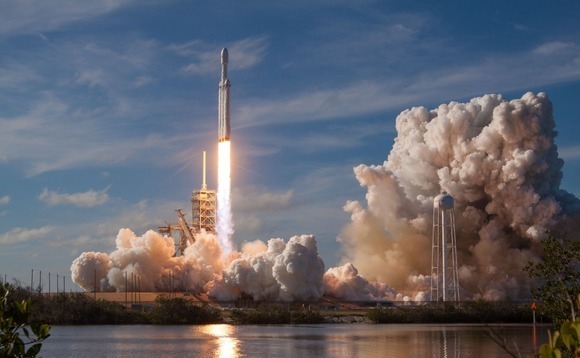
Deal focus: Hike supports Song Yao's second act

Orienspace, a Chinese rocket developer founded by the entrepreneur behind DeePhi Technology, has secured USD 60m in funding from Hike Capital and others to accelerate its launch schedule
Song Yao became one of China's youngest serial entrepreneurs last year when he co-founded rocket developer Orienspace, having previously guided artificial intelligence (AI) chip developer DeePhi Technology to a USD 300m acquisition by US semiconductor player Xilinx.
Yao established DeePhi in 2015 as a fresh electrical engineering graduate from Tsinghua University. The groundwork was carried out on campus in conjunction with one of his professors.
Not long after the sale to Xilinx in 2018, Anna Xu, a founding partner of Hike Capital, invited Yao to address the firm's investment team. Hike positions itself as a founder's fund, so places a premium on the experiences and insights offered by successful entrepreneurs.
It is also a useful networking exercise, and Hike recently led a CNY 400m (USD 60m) Series A for Orienspace. Other investors include CMBC International, Sky Saga Capital, Vision Plus Capital, Atlas Capital, Oriza Seed, FanZhuo Capital, and game developer miHoYo. The round came just four months after a CNY 300m pre-Series A led by MSA Capital.
"Song Yao plus scientists spinning out from China's space system amounts to a perfect combination. Yao has experience running start-ups and raising capital, and he has a deep understanding of technology. The scientists have extensive experience developing and launching rockets. It is a strong founding team," Xu said.
Hike's interest in space technology was piqued much earlier. In 2014, regulatory reforms permitted start-ups to participate in civil-military integration projects, prompting the emergence of the first batch of commercial rocket start-ups. However, progress was stymied by restrictions. For example, private companies couldn't buy solid-fuel engines from state-owned suppliers until 2018.
Another key development came in 2020 when the National Development & Reform Commission (NDRC) classified satellite internet as new infrastructure. Elon Musk may have provided inspiration.
His own start-up, SpaceX, has sent about 2,400 small satellites into low Earth orbit since and currently provides satellite internet access spanning 33 countries. SpaceX has ambitions to achieve global coverage by launching as many as 42,000 satellites. Musk and others may end up testing the capacity of low Earth orbit, which is said to be able to hold 60,000 to 100,000 satellites.
Demand and supply
"What was the biggest turning point? Demand driving the market upwards. There is strong demand in China to send satellites into low Earth orbit, but not enough supply to meet this demand," said Xu.
She estimates the supply-demand gap for commercial satellites is worth about CNY 30bn in the short term. However, a key sticking point is reliability. China-based commercial rocket developers have completed eight launches to date, but only three made it into orbit.
Landspace was responsible for the first launch in 2018 and I-Space became the first to achieve orbit a year later. Since then, the company's Hyperbola-1 solid-fuel rocket has tried and failed three times to repeat the trick. Galactic Energy, a relatively late arrival on the scene, now seems to have assumed the lead. It has completed two consecutive orbit missions using a light-lift solid rocket.
"It will be an important launch window for the national satellite network in the next five years. The biggest pain point is the launch success rate. Whoever can execute delivery with a high success rate and at a relatively low cost will lead the market," said Xu. "Timing is very important."
While Landspace and OneSpace are now primarily focused on liquid-fuel rockets, OrienSpace has pencilled in a launch and test flight using a solid-fuel rocket for mid-2023. It represents a balance between long-term vision and short-term reality: liquid-fuel engines are more expensive and riskier than solid-fuel equivalents, and they take longer to develop.
Ultimately, Orienspace wants to achieve proficiency in both areas, underpinned by a systematic operation that facilities iteration. A reusable liquid-fuel engine is already under development.
The company's first launch vehicle, Gravity-1, is intended to lift an approximately 6,500-kilogram payload into low Earth orbit, or 4,200kg to a 500-kilometre sun-synchronous orbit. This would be by far the largest-capacity launch in China's commercial space industry. Launches by Orienspace's peers tend to lift around 300 Kilograms.
While acknowledging the huge commercial upside of rocket launches, Xu recognises the risks and pledges to avoid overexposure to the industry. Hike's initial investments into a deal in areas such as space tech are capped at 10% of the overall fund corpus. Once a portfolio company has proven its business and demonstrated an ability to deliver products, the VC firm can double down on it.
Latest News
Asian GPs slow implementation of ESG policies - survey
Asia-based private equity firms are assigning more dedicated resources to environment, social, and governance (ESG) programmes, but policy changes have slowed in the past 12 months, in part due to concerns raised internally and by LPs, according to a...
Singapore fintech start-up LXA gets $10m seed round
New Enterprise Associates (NEA) has led a USD 10m seed round for Singapore’s LXA, a financial technology start-up launched by a former Asia senior executive at The Blackstone Group.
India's InCred announces $60m round, claims unicorn status
Indian non-bank lender InCred Financial Services said it has received INR 5bn (USD 60m) at a valuation of at least USD 1bn from unnamed investors including “a global private equity fund.”
Insight leads $50m round for Australia's Roller
Insight Partners has led a USD 50m round for Australia’s Roller, a venue management software provider specializing in family fun parks.








